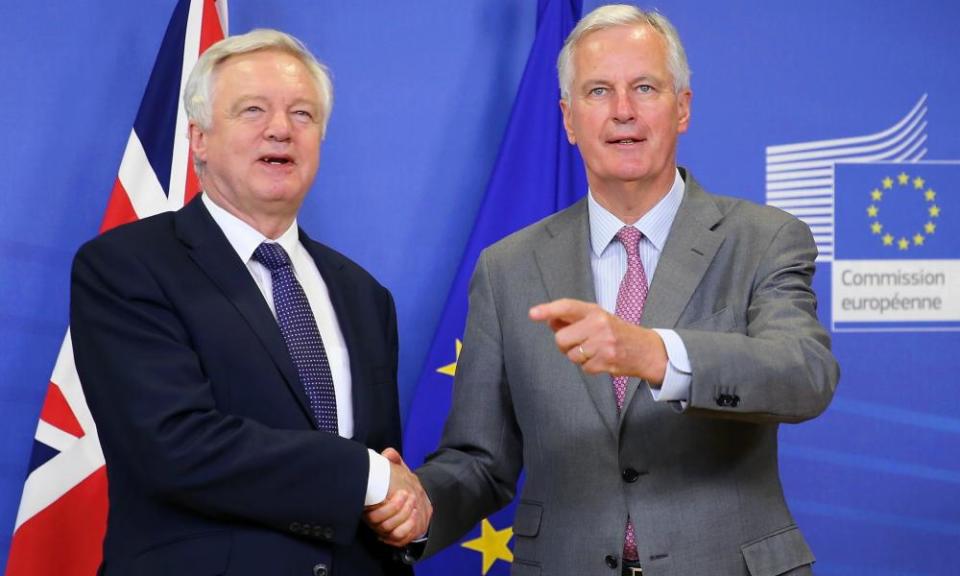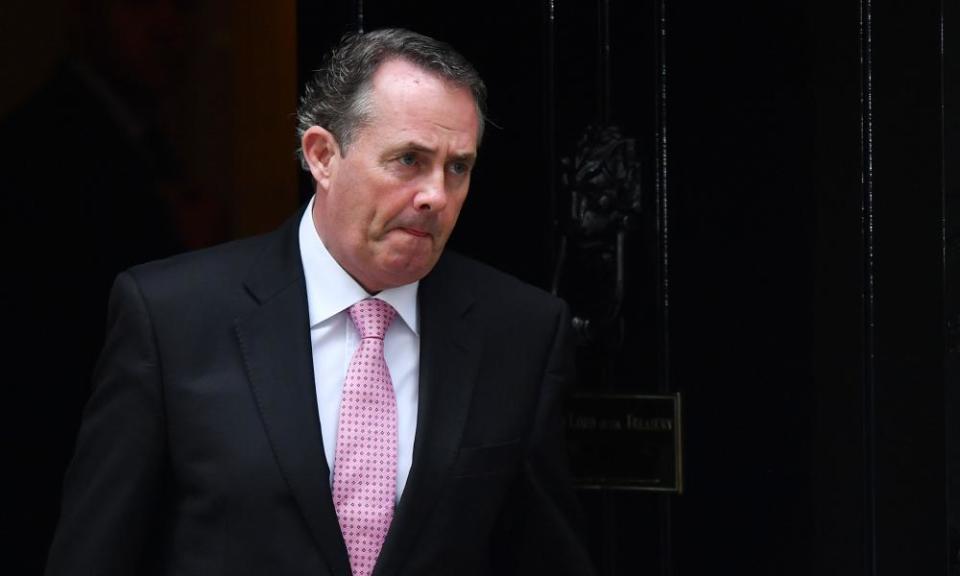The UK’s Brexit negotiators are powered by little more than hope

Don’t worry, the Brexiters say – when the negotiations reach their nail-biting conclusion, Brussels will cave in.
In parliament, there are more than enough Tory backbench MPs who hold this view to stymie any backsliding by chief negotiator David Davis and his cabinet colleagues. Or so they think.
In the media, the Spectator is joined by the Daily Telegraph in giving Brexiters the backbone to carry on, when most of the establishment is obviously against the project.
The view from the Brexit trenches can be summed up in the recent Spectator article headed “Ignore the doom-mongers, and the EU’s attempts to embarrass Britain – a good deal is looking likelier than ever”.
This is the cake-and-eat-it deal that secures full access to the single market, without making any concessions on the free movement of labour or the power of the European court of justice over disputes involving UK citizens and businesses.
This message can also be heard inside the Treasury, where senior officials believe that when the final deal is announced, British business will smile at the result and UK plc will sail on happily as an independent nation.
There will be enough access to the markets and institutions of the EU, they say, for the banks, the car companies and the pharmaceutical giants to scrap any relocation plans.
Money talks is the message and even Michel Barnier cannot escape that basic maxim.
But as a plan it is more akin to buying a lottery ticket than executing a well thought-out strategy. Maybe we shouldn’t be surprised that the government is so cavalier. If ever there were two people who thought planning was boring and that most things could be achieved if carried through with elan and fortitude, it was George Osborne and David Cameron.
Osborne, it must be remembered, botched two out of six budgets and was on course to miss his austerity target by five years when he was booted out of office, while Cameron’s studious lack of planning landed the country with a Leave vote and a civil service about as prepared for the battle with Brussels as Baldrick was before going over the top in Blackadder Goes Forth.
The same goes for Liam Fox’s attempts to portray himself as a superb dealmaker who can help British business break into one virgin market after another.
Fox flies to the US this week to begin laying the groundwork for a deal with the Trump administration. We don’t know anything about the agenda he intends to pursue, because he has refused to answer questions about the specifics.
Nonetheless, he talks big about his prospects for a deal, citing the recent EU-Japan and EU-Canada trade deals as examples of what can be achieved.
What he ignores is that the EU-Japan deal only covers manufacturing and even then, there are flaws in the scheme that relate back to our relationship with the rest of Europe.

As Jill Rutter, the Brexit specialist at the Institute for Government, said in a recent blogpost, Fox’s view that a trade deal with the EU is easier than most ignores how trade works.
She picks up on comments by Barnier, who says the convergence of current regulations is a good starting point, but what about the future, as the UK capitalises on its new-found freedom and makes its own independent rules?
Barnier has said: “The questions that we have are: is that divergence reasonable? Is it under control? Is it mastered, and if so by whom? Or will it become a tool for regulatory competition with us?... It is one of the keys to the success of the negotiation … of the future relationship.”
The Japanese have agreed to converge with the EU, but once you look in detail at the deal, there are many areas where the two sides remain far apart – on vehicle emissions, for example. Japan can only gain from convergence, however small. The UK, already converged, can only lose.
Rutter recognises that Fox and the other gamblers in government may prove to be right and, for the sake of a few car sales, the EU will roll over, but she warns “it would be foolish for the UK to base its economic future on that hope”.
And yet that hope persists and continues to have a voice. Not among the major business groups, and most pointedly the British Chambers of Commerce, which this weekend has come out of hiding to declare the government’s Brexit stance a disaster.
Its stance shows that business leaders have little faith in Fox establishing bridgeheads into the US, Japan and EU economies to facilitate trade. They are wary of what he is prepared to concede, as are anti-poverty campaigners, who fear that in talks with the US he will usher back all the bad bits of the failed TTIP trade talks between Washington and Brussels, from secret arbitration courts to chemically washed chicken and greater access to public sector contracts.
Michael Gove says his cabinet colleagues have informally agreed to allow free movement of labour for several years after quitting the European Union. It’s a concession that affects the transition and not the ultimate deal. That deal is still expected to secure the main benefits of membership, while satisfying the demand for sovereignty in all matters. It is a hope and no more.

 Yahoo Finance
Yahoo Finance 